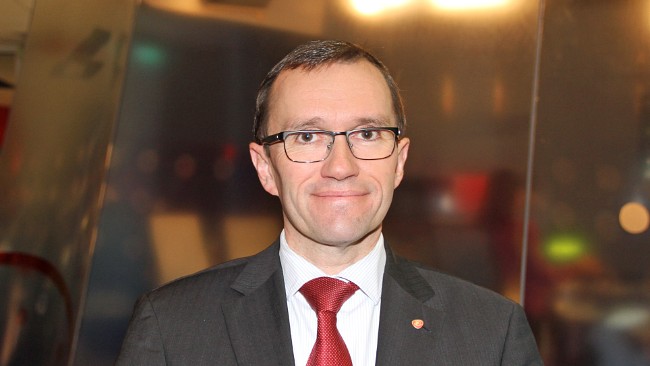Malaysia’s Government Transformation Programme (GTP) and the Economic Transformation Programme (ETP) have been commended by Norway.
Norway’s Foreign Affairs Minister, Espen Barth Eide, said it was very important for Malaysia to have such a strategic focus, to achieve the goal of a developed and high-income nation by 2020.

Describing Malaysia as an easy place to do business, he referred to the World Bank Report 2013, where the country was ranked the 12th most business friendly country globally and first in terms of ease of getting credit.
“This places Malaysia on a better footing to achieve the developed and high income nation status,” he told Bernama recently.
Eide was here as part of his “Asia Trip” that included Brunei and Indonesia
He also said that Malaysia’s globally known diverse culture with plenty of talent, also made the developed and high-income nation goals more achievable.
“Malaysia’s gross domestic product (GDP)has been increasing annually.
“When a country’s total GDP and GDP per capita increases annually, it is a good thing, as more people are moving from the lower to middle class and so forth,” he added.
He said however, that this also meant that Malaysia had to keep transforming, as one of the issues of being a low income nation, was obviously cheap labour.
“When the GDP grows, you don’t have that cheap labour. This means you need to work on something else, such as the need for more automation, less manual, or maybe move from one sector to another,” he added.
Malaysia recorded a GDP growth of 5.1 percent in 2012 and has projected growth of between 5.0 to 6.0 per cent this year.
Malaysia’s GDP expanded by 4.1 per cent in the first quarter of this year, supported by stronger domestic demand, which expanded by 8.2 per cent during the same period.
On Norway’s transformation from a poor country to one of the world’s richest, Eide said good governance played a very important part of the process.
“Norway was previously a poor country, in absolute and relative terms, compared to all the European countries.
“But we managed to get out of the situation, particularly by looking at maritime businesses, building hydro power plants and heavy industries based on power plants, while able to move towards becoming a middle to higher (income) nation.
“Now, we are one of the world’s richest,” he added.
Touching on bilateral relations with Malaysia, he said the 42 years of fruitful ties, is expected to grow on the economic front as the Norwegian business community based in the country is keen to further expand their businesses.
“I also know that the Norwegian Southern Wealth Fund, which is the largest in the world, is also moving its focus more to emerging economies in Asia. As such, the economic front will grow here, and can be further expanded and diversified,” Eide said.
As of 2012, Norwegian exports to Malaysia totalled RM682 million, while imports stood at RM940 million.
The Norwegian Pension Fund has recorded RM5.3 billion in investments in about 79 Malaysian companies, and about RM2 billion in obligation funds.
Eide said that Norway was increasingly moving away from just looking at exports and imports, while more focused on global value exchange.
There are about 50 Norwegian companies in Malaysia, in sectors like oil and gas, shipping and information and communications technology.
